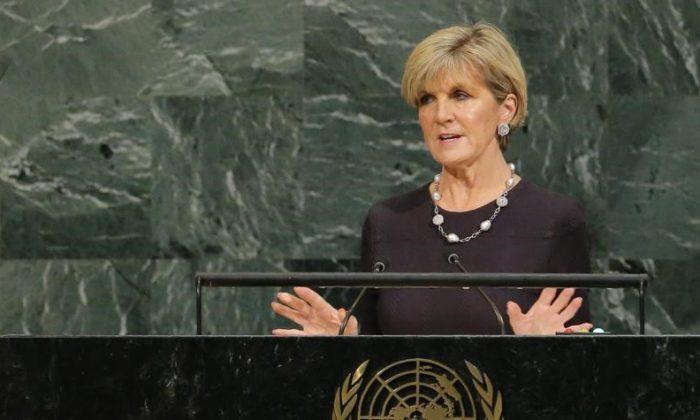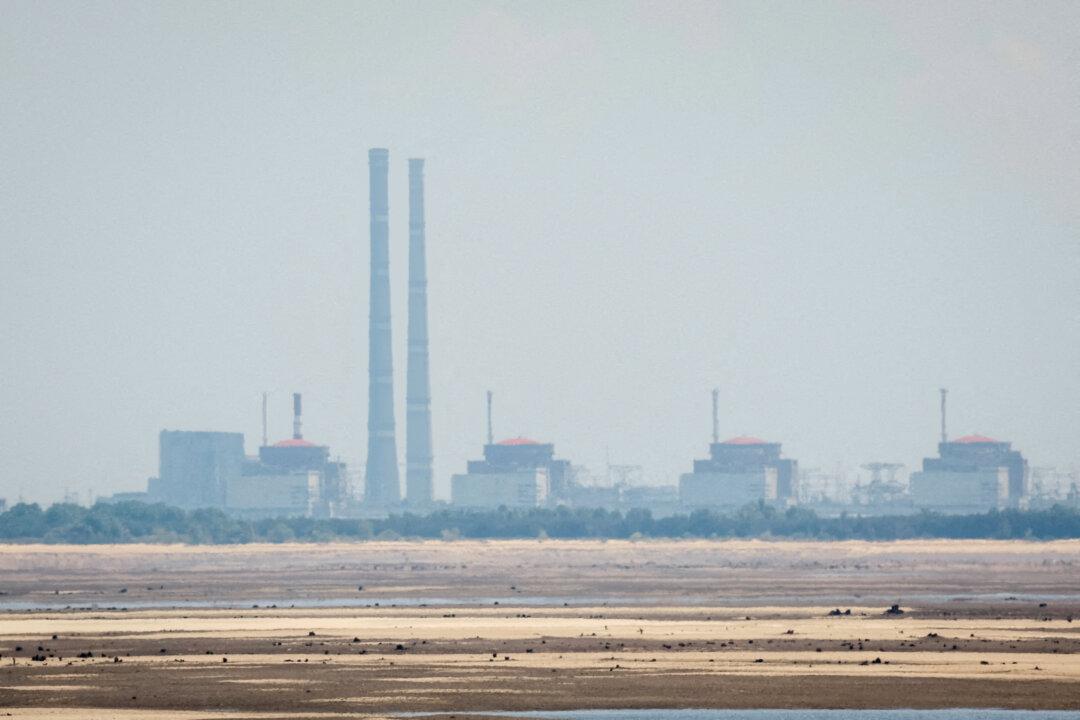SYDNEY–Australian Prime Minister Malcolm Turnbull appointed Foreign Minister Julie Bishop as acting prime minister on Oct. 28 while he travels abroad after a duel citizenship mix-up ousted his deputy and cost his government its parliamentary majority.
Turnbull had been scheduled to fly to Israel on Friday, Oct. 27, for a week-long visit but was unable to leave without an acting prime minister in place.
His departure has been delayed until Monday, he told media in Sydney on Saturday.
“It’s very important to recognize that contrary to some of the dramatic speculation in the media, that the government has a majority in the House of Representatives,” Turnbull said.
Australia’s High Court ruled on Friday that Deputy Prime Minister Barnaby Joyce and four other lawmakers were ineligible to remain in parliament because they held dual citizenship at the time of the last election.
The court’s shock decision had immediate ramifications, stripping the coalition government of the one-seat majority it holds in the lower house, forcing it to call a by-election in Joyce’s seat and sending the Australian dollar lower.
The opposition Labor Party has said it is considering a legal challenge to every decision made by Joyce since last year’s election.
Turnbull must now win the support of one of three independent lawmakers to keep his minority government afloat, with two sitting weeks of parliament left until it recesses for the year. At least two independent lawmakers have promised their support.
The Nationals have appointed Indigenous Affairs Minister Nigel Scullion as interim parliamentary leader until the results of the by-election have been determined.
Turnbull said on Saturday that the deputy position would remain vacant until after the Dec. 2 by-election for Joyce’s seat. The position normally goes to a member of the National Party, the junior partner in the coalition government.
Foreign Minister Julie Bishop, a member of Turnbull’s Liberal Party, would instead be acting prime minister when he travels to Israel on Monday, three days behind schedule.
“Government goes on, good government goes on,” Turnbull told reporters in Sydney, dismissing suggestions that the inability to agree on a deputy indicated tensions within the coalition. “When times get tough, that’s when you put your arms around your mates.”
Turnbull now needs the support of one of three independent lawmakers to keep his minority government afloat, with two sitting weeks of parliament left until it recesses for the year. At least two independent lawmakers have promised initial support, but noted that it may be conditional.
Constitutional Change
Turnbull said the court’s interpretation of the constitution, which bars dual citizens from parliament in a bid to prevent split allegiances, was “very strict” and “very hard”.He added that he was considering whether to recommend a change to the constitution, noting that more than half of the country’s population of 24 million was either born overseas or has a parent who was born overseas.
“Our objective is to ensure parliament is open to everybody,” he said.
A referendum would be needed to change the constitution.
The High Court ruled on seven lawmakers, some of whom had already resigned. All seven accepted that they were dual nationals at the time of their election but claimed they were unaware of their status. Some were conferred a second nationality by birth, others by descent.
The others dismissed were all senators in the upper house and their seats can be assigned to party-appointed alternatives.






Friends Read Free